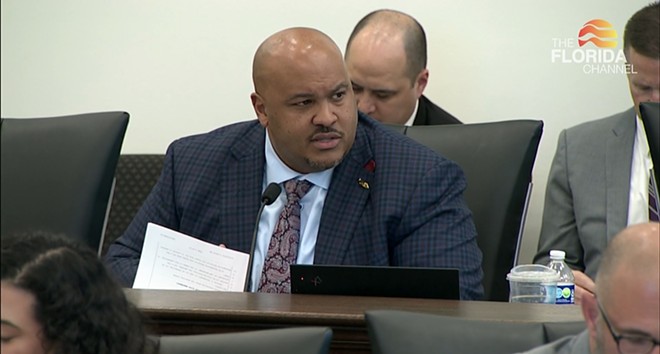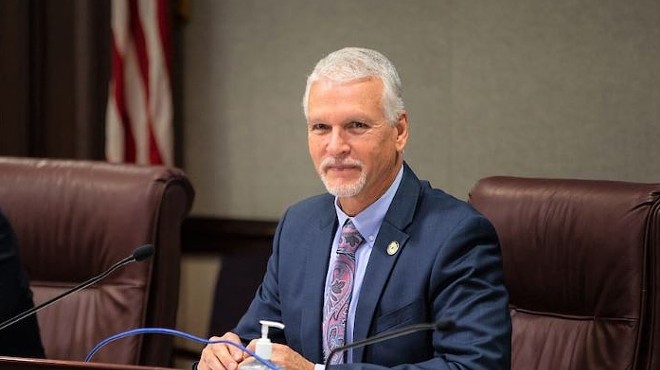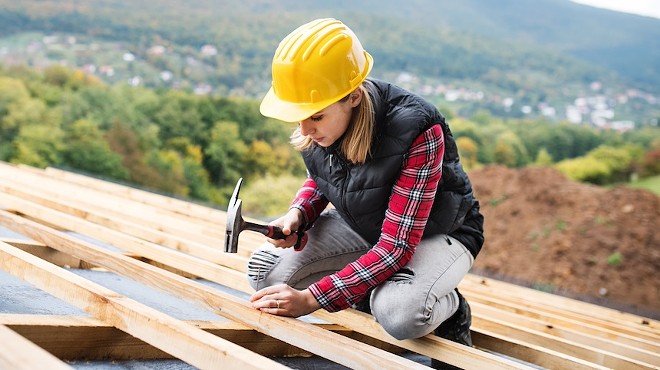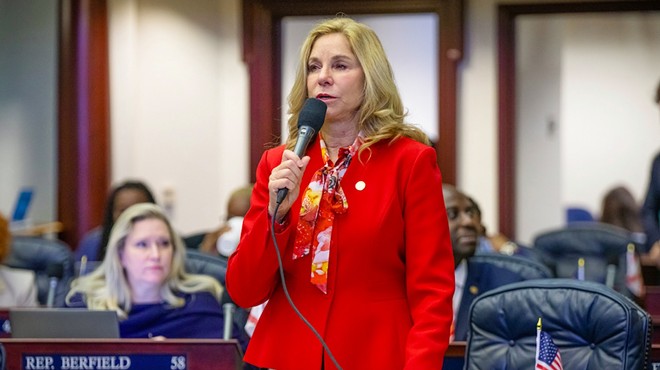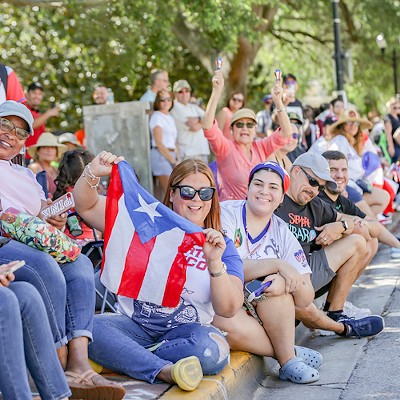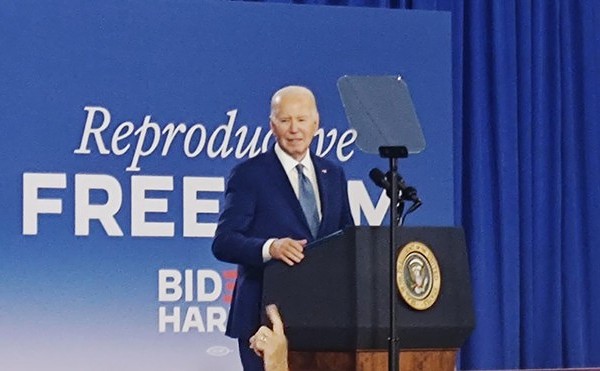As some states seek to strengthen protections for minors in the workforce, Florida lawmakers are moving forward with a bill that would weaken child labor law by allowing teenagers 16 and older to work non-clerical jobs on residential construction sites.
The bill (SB 460) cleared its final Republican-dominated committee stop Thursday in a 13–4 vote. The bill will now head to the Senate floor, for a vote by the full Chamber.
The child labor provision, which has drawn opposition from social advocacy and labor organizations, is tucked within a larger bill about career and technical education programs in schools, which can include supervised courses in the construction trades.
Under federal law, minors under 18 are barred from most jobs on construction sites — save for office or sales work — with limited exceptions for minors who are employed as part of a government-approved student learner program or apprenticeship.
Email communications obtained by Orlando Weekly through a public records request show the bill was written by lobbyists for the Florida Home Builders Association and Associated Builders and Contractors of Florida — both of which have also lobbied against efforts to raise Florida’s minimum wage and have lobbied in favor of other anti-worker policies.
Carol Bowen, chief lobbyist for the ABC of Florida, emailed the draft legislation to Sen. Simon’s legislative office in October, describing herself and a lobbyist with the FHBA as “point people” for the bill.
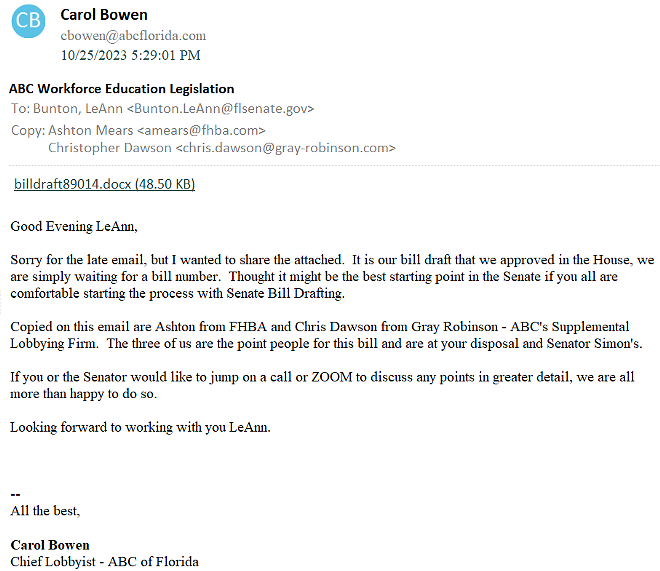
It also fits within a broader trend of child labor law rollbacks that have been introduced and passed in state legislatures across the country in recent years, with the backing of deep-pocketed special interest groups that routinely lobby for anti-worker policies.
Sen. Simon’s office declined to comment on his collaboration with industry groups on the legislation, when reached by Orlando Weekly in January. Simon has publicly defended the bill by arguing that the goal is to increase gainful opportunities for youth.
Critics, including the Florida Parent Teachers Association and union workers in the trades, have warned of potential safety risks. The private construction industry accounts for the highest number of workplace fatalities in the state, and is the deadliest industry for youth nationwide, behind agriculture.
Construction is also one of the most common industries in which child labor violations occur, according to the U.S. Department of Labor. During a previous hearing on the legislation, co-sponsor Sen. Keith Perry argued that, if employers are breaking the law already — by allowing kids to work hazardous jobs — this bill by and large would not change that.
“I started roofing when I was 16 years old. I started my business when I was 17 years old — which was illegal, is still illegal, and will be illegal under this bill,” said Perry, who owns a roofing company that has been cited by the federal government in the past for wage theft. “People who break the law are not going to follow the law anyway, whether this bill is passed or not.”
The original version of the legislation, for instance, would have allowed teens 16 and older to work on commercial construction sites, in addition to residential. It also would have allowed teens 16 and older to work on roofs, scaffolding, and superstructures — with no limit on how high those constructions could be.
As amended — following pressure from the public — the bill would instead only allow those older teens to work in residential construction and would maintain a prohibition on allowing minors to work on roofs, scaffolding or superstructures more than six feet off the ground.
The bill does have certain safeguards. The bill prohibits any work by minors that would violate federal child labor or OSHA rules. Older teens would need to first obtain OSHA-10 certification, and would need to work under the supervision of an adult 21 or older who has at least two years’ experience in the industry.
Bill opponents, however, point to the fact that available supervision on construction sites in Florida is already lacking, according to employment data from the U.S. Bureau of Labor Statistics, and the OSHA-10 license offers insufficient training.
“To see in this bill that you don't even need someone to have a journeyman with you while you're doing this job, and it's just someone who has taken their OSHA 10 is very worrying,” said Kevin Lawhorn, a 19-year-old apprentice in the trades who testified in front of senators Thursday.
“If I would have started maybe three years ago, and no journeyman ...” Lawhorn paused, then continued, “I don't know how I would be today, if I would have been injured, if I would even be here. It's a very dangerous job.”
There are also few personnel to actually ensure construction companies and contractors are following the law, as it is.
A spokesperson for the Florida Department of Business and Professional Regulation, which enforces Florida’s child labor law, told Orlando Weekly in December that they have just seven personnel dedicated to the task of enforcing the law across thousands of job sites statewide.
The federal government also has enforcement personnel in the state, plus investigators from OSHA, but experts say — due to flat-funding from Congress and consequent understaffing — that federal enforcement is also lacking in the states.
This means victims and their parents can’t sue employers for child labor violations on their own; the only way to enforce child labor law is through the government. Colorado recently enacted its own law to, at the very least, allow minors who are injured on the job to sue for damages.
Minors 14 and older can work a number of jobs legally in the state — in grocery stores, convenience shops, movie theaters and more.
But supporters of the bill say that construction jobs can pay better. They also point to a labor shortage in the industry that is expected to worsen as workers age and retire.
The bill also garnered additional criticism from workers in the trades Thursday for language in the bill that, according to their interpretation, could undermine the journeyman licensing process in the state. “It really eliminates the ability of cities and counties to issue [journeyman] licenses, and to make sure qualified people are on these jobs,” said electrician James Ingle, president of an International Brotherhood of Electrical Workers (IBEW) local in Gainesville.
For this reason, Democratic Sen. Shevrin Jones, who voted in favor of the bill during a previous committee hearing, said he was a 'No' vote for the time being.
Sen. Simon, the bill sponsor, said he's “always open to learn" from various stakeholders about how to improve the bill and to give kids the ability to do work in the trades “as safely as possible.”
“Nobody up here in this room wants to put our kids in harm's way unnecessarily,” Simon said in closing. “And we'll continue to strengthen this bill as we move forward.”
If passed by the full Senate, the legislation would still need to be approved by the Florida House, where a similar companion bill has also been advancing. If approved by both chambers, the legislation would then head to the Governor’s Office for DeSantis’ final approval.
Meanwhile, another child labor-related bill (HB 49), gutting restrictions on the number of hours that minors 16 and older can work during the school year, already passed the Florida House earlier this month. It would also explicitly allow home-schooled children to work during school hours, which is currently prohibited. The bill is scheduled to be heard by the Senate Rules committee Monday afternoon.
Follow us: Apple News | Google News | NewsBreak | Reddit | Instagram | Facebook | Twitter | or sign up for our RSS Feed

